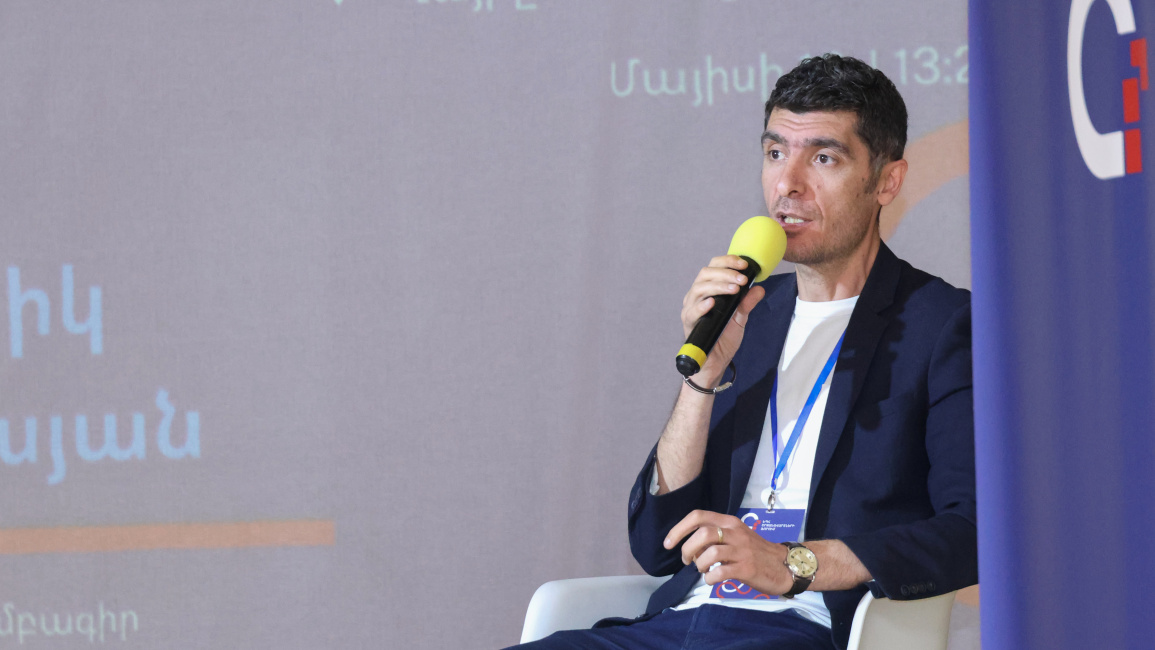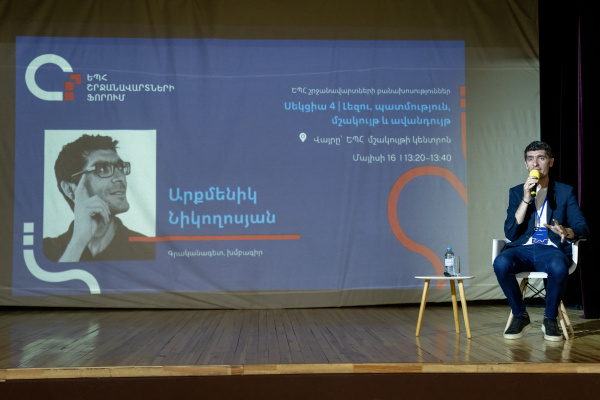July 14, 2025 | 10:30
Education
Society
Graduates
Armenian-language literature in the changing world: Insights from literary scholar Arkmenik Nikoghosyan
In today’s world, the field of literature is characterized by emerging trends and new influencing factors. These developments are equally apparent in Armenia. According to literary scholar and editor Arkmenik Nikoghosyan, producing good writing or quality literary texts alone is no longer sufficient for an author to reach a broad audience, gain recognition, or achieve book sales. At YSU Alumni Forum, during the section titled "Language, History, Culture, and Tradition," Arkmenik Nikoghosyan discussed modern Armenian-language literature and its development trends.

"If we conduct a survey in Armenia to find out who wants to become a writer, our data and the letters we have received show that two out of every three people are either already writing or dreaming of becoming writers," Arkmenik Nikoghosyan said during his speech.
He argued that Armenian literature during the post-independence period was neither fully assimilated nor widely read, failing to integrate into the public consciousness and collective thought. Consequently, questions persist today, such as: Are there still writers? Does Armenian literature exist? What themes do they write about?
"Such questions have long been answered, at least within academic circles," he noted, emphasizing the importance of recognizing the literary changes and developments that have occurred over the past four to five years whenever such discussions take place.
"In this regard, truly profound transformations have taken place. The most significant characteristic is that we are dealing with literature from two distinct eras. A comparison of Soviet-era Armenian literature with that of the independence period reveals stark contrasts in ideology, themes, literary freedom, poetic devices, and vocabulary. These differences apply equally to prose and poetry," he explained.
Arkmenik Nikoghosyan also pointed to a crucial factor to consider when reading modern literature: the rapid and multifaceted impact of current social and political events on literary works. Moreover, the swift influence of modern technologies and various public relations strategies increasingly subjects literature to market demands and public trends.

"Through various studies, we face a range of challenges, beginning with the fact that books or literary works most frequently advertised, promoted, or sold may, from a scholarly perspective, fail to meet critical expectations. We often witness situations where readers purchase contemporary Armenian authors’ works prompted by certain trends, only to experience disappointment thereafter. This is a consequence of writers resorting to diverse approaches and techniques at this stage of their careers," A. Nikoghosyan added.
The scholar stressed that, beyond writing itself, several important prerequisites influence literary success—starting with the author’s persona, individuality, way of speaking, and the marketing campaigns centered on them, all of which can yield varied outcomes and shape public perception.
"In today’s world, including Armenia, merely writing well and producing quality texts no longer suffice for gaining public visibility, recognition, and book sales, as new trends have emerged," A. Nikoghosyan concluded.
Further details on this and related topics can be found in the accompanying video.
Video

